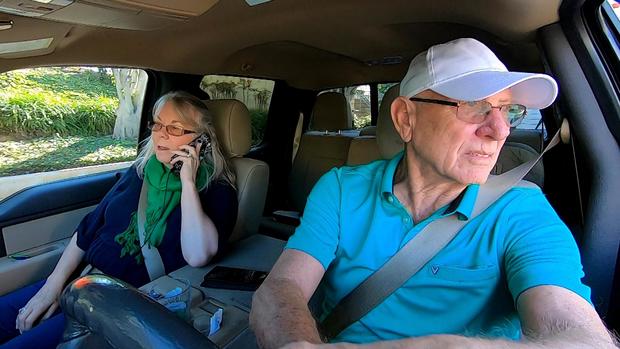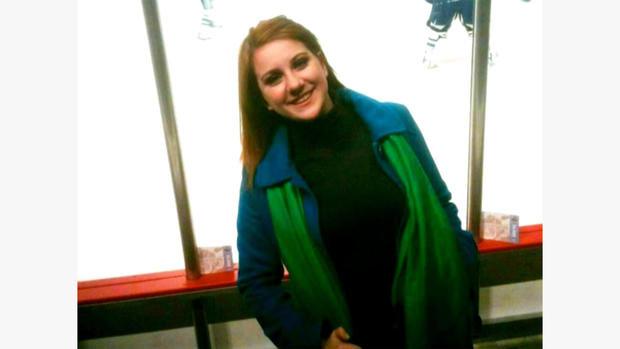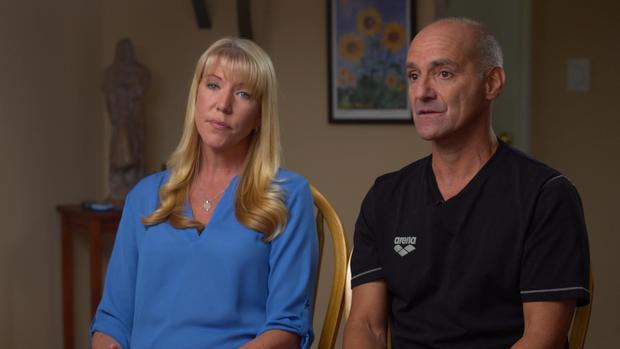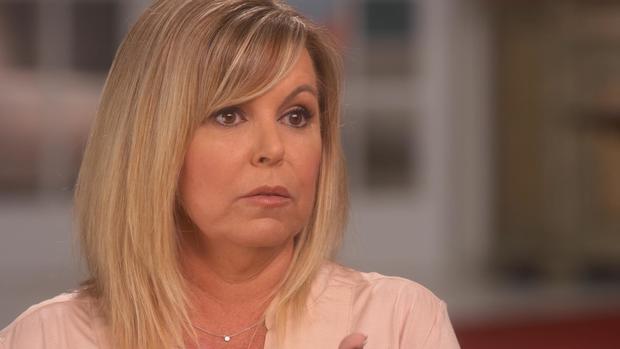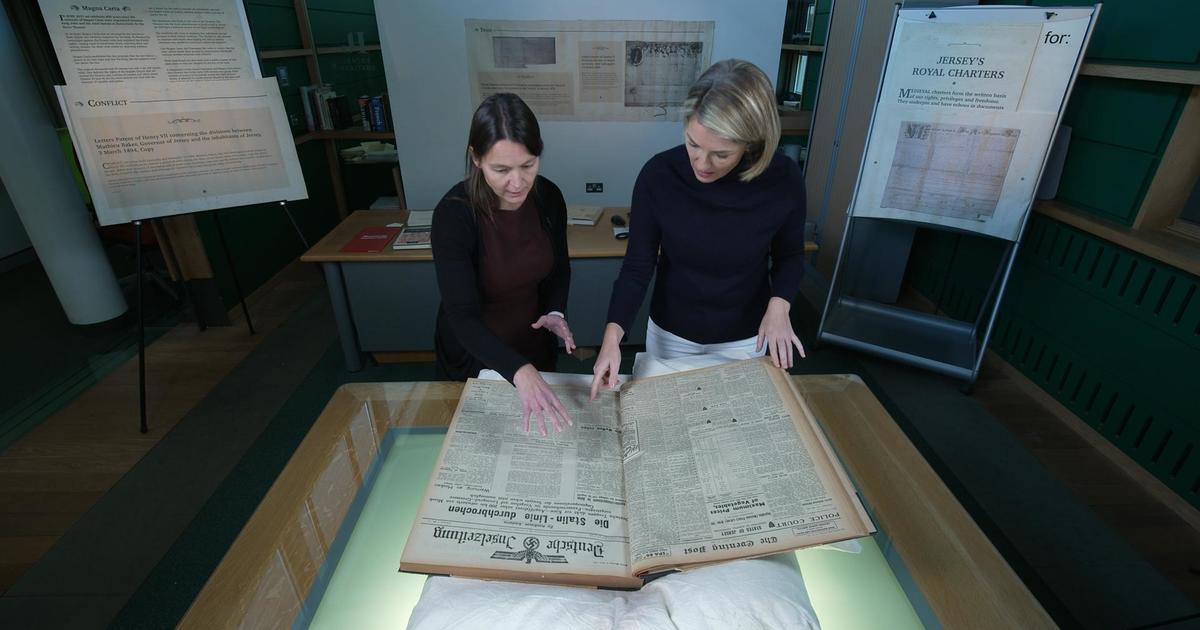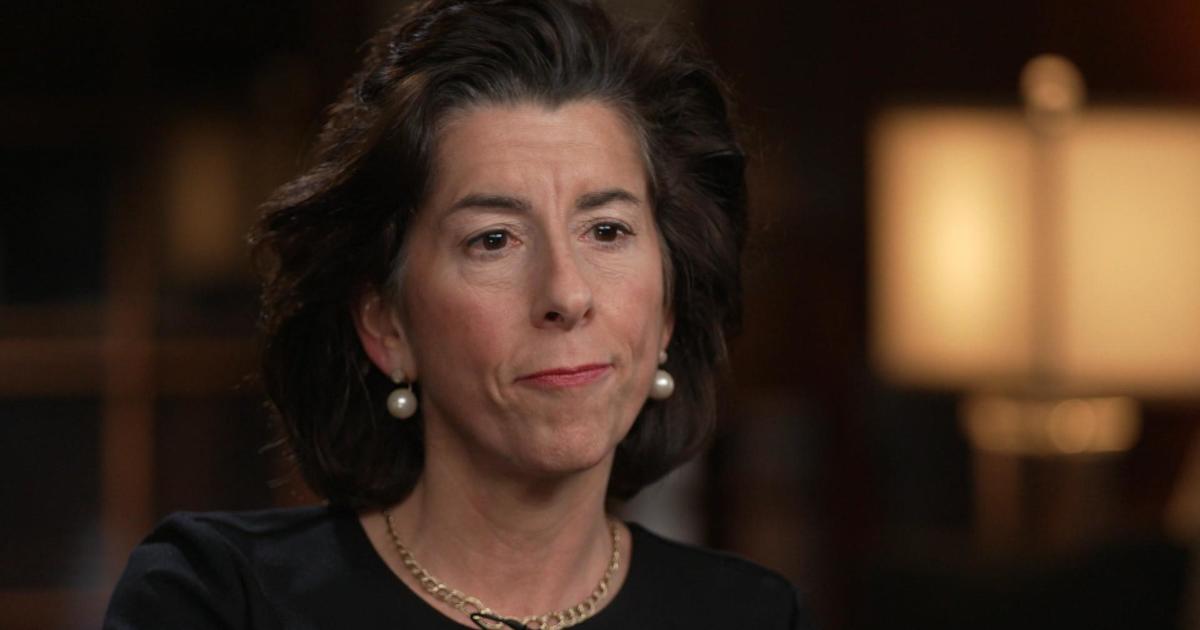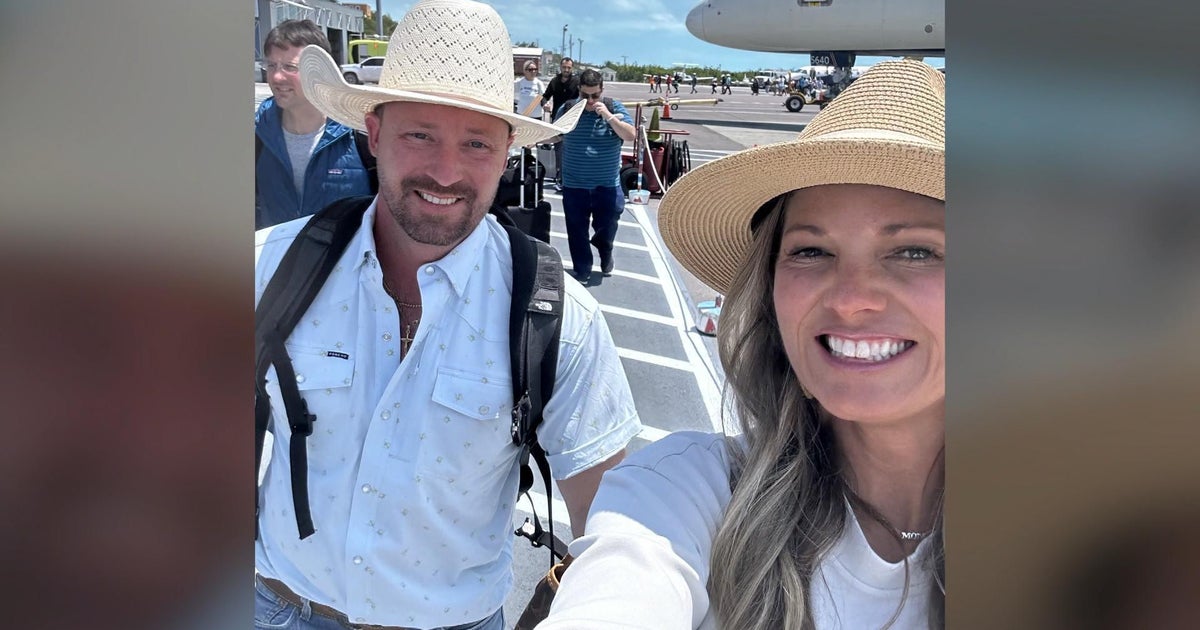Parents of a 2012 Aurora, Colorado, shooting victim travel the country to help others impacted by mass shootings
This weekend, within the space of 24 hours, the United States suffered two mass shootings. Late Saturday morning, a lone gunman walked into a Walmart in El Paso, Texas, murdering 22 people, and wounding at least 26 others.
Then, in the early hours of this morning on a street in an entertainment district in Dayton, Ohio, a gunman with an assault-style rifle killed nine and wounded at least 27 before police killed him.
One of the horrors of these killings is how familiar they've become, and how little seems to change, except in the lives of the grieving friends and families left behind.
Sandy and Lonnie Phillips know that grief firsthand. As we reported back in March, their daughter was killed seven years ago in a mass shooting. Since then, they've made it their mission to help others navigate the public, and sometimes political, aftermath of these tragedies. They travel the country trying to build a network of survivors, offering victims and families a kind of guide to a grief and a future few can imagine.
Sandy Phillips: Your identity has been stripped from you. You know, whether it's mother or daddy or father or sister or brother. I no longer have that title. I no longer have that relationship. And when it's violence like ours was that takes a long time to recover from.
Anderson Cooper: I think some people think that there's a time table for grief.
Sandy Phillips: (LAUGH) Oh, yeah.
Anderson Cooper: Do you get that?
Sandy Phillips: Oh, yeah. The five stages of grief, right? And you go through all five of 'em, and you think, "Okay, now I'm done." And they don't tell you, oh, no, you get to start it all again. And they're out of sequence. A lot of survivors just don't know that, especially going into it. You might find that what you have done for the last 20 years of your life or 30 years of your life has absolutely no meaning to you anymore. And that was certainly the case for us.
It wasn't long after their daughter's murder that Sandy and Lonnie Phillips quit their jobs. They've gotten rid of most of their belongings and rented out their house so they can travel around the country to mass shootings hoping to meet survivors and offer help.
The scene of a mass shooting is not an easy place to come to. It can be like walking into a stranger's funeral
But in grief, strangers can quickly become family.
We saw the Phillipses in Thousand Oaks, California, where 12 people were gunned down at a country music bar last November. It is one of the latest stops on their heartbreaking journey. Just days before they arrived here, they were in Pittsburgh, where 11 people were murdered at the Tree of Life Synagogue.
Anderson Cooper: It's so interesting, though, what you're doing. You're not trained therapists. You're not counselors. And yet, you're-- have upended your lives and reaching out in a very individual way to people.
Sandy Phillips: Yeah. It's-- compassion.
Anderson Cooper: that's what it is?
Sandy Phillips: bottom line, it's about compassion.
Lonnie Phillips: The compassion we get from those people too. It's not like it's a one way deal.
It was in 2012 that their daughter Jessica Ghawi was murdered along with 11 others in a movie theater in Aurora, Colorado. She was 24, and an aspiring sports reporter.
Anderson Cooper: Can you take me back to that day?
Sandy Phillips: (Sigh) Yes. The young man that was with her, Brent, was like a son to us. And-- she decided that she wanted to take him to see the Batman movie. And-- when the shooting happened they stood up, and never made it out.
Anderson Cooper: Both of them?
Sandy Phillips: Brent survived. He was shot-- trying to save her. He went into paramedic mode immediately because that's what he does for a living. And-- the phone rang--
Anderson Cooper: He called you from inside the theater?
Sandy Phillips: Yup. And I could hear the screaming going on in the background. And he said, "There's been a shooting."
Sandy Phillips: And I said, "Are you okay?" And he said, "I think I've been shot twice." And I knew then that, okay, something's bad. And I said, "Where's Jessi?" And he said, "I tried." And I said, "Is she okay?" And he said, "I did my best. I tried." And I said, "Oh God, Brent, don't tell me she's dead." And he said, "I'm really sorry." And I started screaming--
Lonnie Phillips: and she was sliding down the wall screaming, and I grabbed her and picked her up, took her to the couch, and she kept yelling, "Jessie's dead!"
Sandy Phillips: It's been six years now almost seven, and there's not a day that goes by that we don't still get upset and still cry.
Anderson Cooper: I lost a brother to suicide, and I-- a lotta people say, you know, this is-- you're now part of a group which you never wish you would be part of.
Sandy Phillips: and it's a lifetime membership and the cost of the dues was way, way, way too high.
Sandy is 68, Lonnie - 75. They've been living mostly on savings, social security, and goodwill, occasionally crashing with friends.
They started a non-profit organization called Survivors Empowered to offer advice and kinship in the wake of mass shootings, but also to give families practical information, like how to deal with media attention or how to get a body home for a funeral.
Anderson Cooper: There's things that happen to the families of people who have been shot in a mass killing that do not happen to families of somebody who has died under different circumstances.
Sandy Phillips: Exactly. The worst part is finding out that the day your child has been killed, that there are already websites that have popped up, and Facebook pages that have popped up saying this is a false flag, and this didn't happen.
Anderson Cooper: Did you have people saying Jessica wasn't real? Or--
Sandy Phillips: Oh, yeah.
Anderson Cooper: -she was a crisis actor.
Sandy Phillips: Yep.
Anderson Cooper: She wasn't real.
Sandy Phillips: Yep.
Anderson Cooper: She wasn't there.
Sandy Phillips: Yep.
Anderson Cooper: You didn't lose a daughter?
Sandy Phillips: All the time.
Since Jessica's murder, Sandy's son Jordan has been harassed and threatened by a man who like many conspiracy theorists claims there was no massacre in Aurora.
It's hard to imagine, but similar harassment now happens to families almost every time there's a mass shooting.
Lonnie Phillips: That's the worst kind of harm you can do to someone. You're a devastated parent becoming more devastated.
After the massacre in Aurora, Sandy and Lonnie, who are gun owners themselves, filed a lawsuit against companies that sold gear and ammunition to their daughter's killer over the internet. The judge threw out the case and ordered them to pay more than $200,000 to cover defendant's legal fees.
They had to declare bankruptcy and now consult for a gun control group to make ends meet. But, they say they keep that work separate from their outreach to survivors.
Lonnie Phillips: We don't ever bring up guns when we go.
Sandy Phillips: We never bring up politics or guns.
Lonnie Phillips: We don't advocate, we don't recruit, we don't do any of that stuff, until somebody shows an interest, and we tell them, you know, you're not ready yet.
The course of their new lives has followed a roadmap of american tragedies: they started in Newtown, then went to Isla Vista, San Bernardino, Orlando, Las Vegas, Sutherland Springs, Parkland, Santa Fe, Pittsburgh and Thousand Oaks. Each massacre is different, but the look Sandy and Lonnie see on the faces of those left behind is the same.
Mitch Dworet: You just can't believe it. It can't be real.
Annika Dworet: No. You don't want to believe it.
Annika and Mitch Dworet's 17-year-old son Nicholas, who had just earned a swimming scholarship to college, was murdered with 16 others, in Parkland, Florida last year.
Mitch Dworet: I expect Nick to come home any day or-- walk through the house. He was such a great kid.
Nick's younger brother Alex, who was grazed by a bullet, doesn't talk much about what happened. He was in a classroom across the hall from Nick's when the shooting began. Their parents were nearby waiting for school to let out.
Annika Dworet: Alex called us and said-- "Mom, I'm in a back of an ambulance. I was hit in the back of the head." And in my mind, I didn't really worry about Nicholas 'cause there's 3,500 at that school, one child was shot. What's the odds of two of my kids being shot? And I took off to the hospital. And--I said, "Mitch, you can wait for Nicholas."
Mitch Dworet: And I waited for Nicholas.
They waited for 12 hours before finally being told nicholas was dead. Within days, a mutual friend connected them with Sandy and Lonnie Phillips.
Anderson Cooper: do you remember that first meeting?
Sandy Phillips: Yeah. Oh, of course. Of course. They had a house full of people. We felt a little bit like we were intruding on a very private moment, which we were, but for a good reason.
Annika Dworet: I was a little skeptical-- in the beginning, and I'm thinking to myself, "What do they want from us."
Mitch Dworet: What do they want.
Annika Dworet: "Why are they here?" And after speaking to them, which too-- we lasted for three hours--
Anderson Cooper: Three hours? That was the first experience--
Annika Dworet: Three hours. Yeah--
Mitch Dworet: And they took the time just, to be here and just, "We're not here for any other reason but for you guys," because you're in a place that's just not of this normal life. You can't imagine.
Annika Dworet: When you open your eyes in the morning, you're just like, "Why should I get up today? W-- why should I do that?" And it's just so painful to feel this pain the whole day. And then-- to meet somebody who has been through this and six years later and they are getting out of bed.
Anderson Cooper: You could look at Sandy and actually see a way through potentially.
Annika Dworet: Right. Right.
Anderson Cooper: What are some of the things you-- kinda the list of things you warn a grieving parent who--
Sandy Phillips: The list is-- I know you don't wanna get outta bed right now, but you're gonna live through this in spite of it. Just know that it's gonna take you a long time that's number one. Number two, people are ripping you off right now as we're speaking. There's probably a GoFundMe page somewhere raising funds for the families, and that money goes into their bank account. You know, you'll never see it. So be careful who you trust. So it's an introduction. (SIGH) You know, mass shooting grief 101.
To help them keep up, the Phillipses are trying to create a network of survivors who can quickly respond to mass shootings anywhere in the country, volunteers like Shanna Caputo. She met Sandy and Lonnie in 2017 after surviving the massacre at a music festival in Las Vegas.
Shanna Caputo: When I first met them, I asked 'em if I could go to Parkland with them cause that was after Vegas and she was like no honey, you're not ready for this yet.
Sandy Phillips: She's telling her story, and I'm listening to her and I'm going, oh my God.
Shanna showed Sandy the cellphone video she unintentionally recorded of the shooting.
Sandy Phillips: And I'm watching the video, and I'm going, "This is triggering me." I can't imagine what she has really gone through.
Anderson Cooper: What was happening around you?
Shanna Caputo: (SIGH) People were going down right away.
Shanna Caputo: I could hear the bullets whizzing right past my head. You would just see that-- them, like, jerk, and I don't know if I can say this, but you would see them just explode.
The gunfire lasted more than 10 minutes. Fifty-eight people were killed.
For weeks afterward, Shanna says she was hardly able to leave her house. Sandy advised her to see a therapist who specializes in severe trauma.
Shanna Caputo: So After about four or five months of therapy I was like a walnut and it cracked open. And I finally cried about it. And I called Sandy and I'm like, "I cried." I was all excited.
Sandy Phillips: And I said, "I'm actually very happy. Now you can begin to put things together, and-- and create the new you." And now she's doing incredible work.
The work Shanna Caputo is doing started last fall, after the bar shooting in Thousand Oaks, California, which is just miles from her house. She's now trying to help some of those survivors the way Sandy and Lonnie Phillips helped her.
Anderson Cooper: Wouldn't it be easier for you to not be immersed in the world of mass shootings? You are immersed in this--
Sandy Phillips: We are.
Anderson Cooper: In a very dark wor--
Sandy Phillips: We-- we live it. But we don't see it as dark. We say-- we see it as shedding a little light. We care about these people. We want to help them find their purpose and find their strength so that they can live their new normal.
Sandy and Lonnie Phillips tell us they are heading to El Paso later this week.
Produced by Nichole Marks. Associate producer, Michelle St. John.
